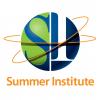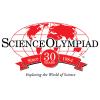In today's Digest we look at a new 3D printer that will soon be sent to the serve aboard the International Space Station, a Florida university's choice to offer drones at its media library, the continueing debate on what age kindergarten students should be to begin school, efforts by various MOOC providers to make their content available in countries currently banned due to trade embargos, and a look at Ford's use of 3D printing to drive its rapid pace of development.
Recent posts
We begin this week by examining the demographics of students enrolled in online courses, the targeting of universities for cyber-attacks, Harley-Davidson's new all electric motorcycle, the struggle between college libraries and e-book publishers over pricing, and a look at the impact the Common Core has had on investment in education technology.
This year, 2014, marks the 25th anniversary of OSC’s Summer Institute program for high school students. Since the Ohio Supercomputer Center grew from academic roots, it was only natural for the center’s founders to develop a program through which they could share with students the fascinating and empowering computational resources they’d assembled. It also was logical that they would create a pipeline to help educate and inspire future scientists and engineers.
This Friday's Digest highlights a strong projected growth for the HPC and data analytics market in the coming years, a school district's use of grant funding to develop low cost personalized education programs, a research data sharing platform developed by the San Diego Supercomputer Center, Louisiana's recent move to drop its Common Core Standards, and the Senate's decision to not consider a recently proposed student loan bill.
On this Thursday we take a look at Cleveland State's expansion of additive manufacturing, the completetion of the first ever U.S. House STEM App Competition, a ranking of Ohio's teacher education programs, the current passing rate of the new 3rd Grade Reading Garauntee, and a new set of bill's signed by Gov. Kasich aimed at improving the education and job placement of recent veterans.
In today's Digest we examine the impact that GRE scores are having on enrollment in STEM graduate programs, a partnership between the world's three largest electric car companies, the signing of Ohio's mid-biennium budget, the distribution of Ohio Third Frontier funding, and a claim from an English spy agency that they have the right to intercept online communications of anyone.
This morning's Digest will examine the move by a number of manufacturers to use more 3D printing in the aerospace sector, a new program at Starbucks that will allow employees to take free college courses, a recent report on Ohio's manufacturing economy, Ohio State's recent win of the 3 year long EcoCar 2 Competition, and the creation of 500 new jobs at Dayton's new "Racino".
The Digest for this Monday will take a look at a new ad from Verizon that is hoping to spark interest in STEM for young girls, a new federal bill that would help streamline the tax write off process for small businesses, a reboot of the Magic School Bus tv show that will focus on STEM topics, a new health services partnership for Ohio State's Wexner Medical Center, and a look at 2014's strong growth in additive manufacturing.
In today's Daily Digest we discuss the growing research into algorithms that will make the use of big data easier, the growing popularity of STEM degrees thanks to a variety of different factors, a recent report that ranks Ohio 25th fo having an innovation based economy, a new technology consortium headed by U of Michigan, and the launch of a new fundraising campaign by the Vitual High School to expand its offerings for summer courses.
These days, as modern philosophers like to say, the only constant is change. With that thought in mind, I decided to document some of the changes currently underway at 1224 Kinnear, but also to take a "deeper dive" into how that particular piece of property had evolved over the last century. What I found was far more interesting that I had suspected!
The Daily Digest today highlights a call from the U.S. Commerce Dept. for factories to rebrand themselves to make them more appealing to potential employees, a look at the strong growth in education technology spending for classrooms in the past year, a California judge's ruling that teacher tenure laws violate the State Constitution, a supercomputer that was able to convince a panel of judges that it was human in conversation, and a ruling from the Ohio Supreme Court that upholds the constitutionality of JobsOhio.
Today we take a look at the results of the recent Ohio Graduation Tests, changes being made to Ohio's teacher evaluation rules that will put less weight on student performance, a British company's use of 3D printing to create a phone for the visually impaired, Purdue's new interactive learning system that is helping retain engineering students, and an international competition to use big data to solve climate change related problems.
Today we will be taking a look at the affect that the Common Core standards are having on ed-tech spending, the potential environmental benefits of autonomous vehicles, the growing input from companies to help train college students for the jobs that are actually available, changes to the ACT tests to include more STEM topics, and the average decrease in state spending on education for the third year in a row.
This Monday's Digest takes a look at efforts by a number of colleges to provide degrees in high demand fields such as big data, Dayton's strong growth due to immigration, a new approach to teaching STEM topics, University of Wisconsin's new feminist biology degree, and Meijer's new dairy production plan thtat will add 100 jobs to Ohio.
The Supercomputer Users Group (SUG) meetings held at the Ohio Supercomputer Center over the last 26+ years have, not surprisingly, been bastions for academics. And, rightly so. In order to give meaningful input to the leadership of the Center, they necessarily discuss complex issues of vital importance to their computational research, involving such technical topics as FLOPS, allocations, algorithms, nodes, software, interconnects, peak performance and more.
The Digest for this Friday takes a look at a debate over how effective education apps actually are for children, a STEM camp being put on in Houston, TX to attract students to various STEM fields, a new bill proposed by the Ohio House to give more funding to charter schools that support dropouts, a Longfellow donation to promote STEM in the Durham, NC schools, and a new set of Legos that depict women as scientists.
The Digest for this Thursday will examine new changes being proposed by the Ohio legislature regarding how teachers are evaluated, the unusual number of enrollment spots still open at some of Ohio's colleges, a new makerspace in Columbus that is set to be the largest in the world, U. of Arizona's new supercomputer that has pushed its way onto the Top500 and Green500 lists, and the implications for learning caused by focusing on typing over handwriting schools.
Today's Digest highlights the difficulty of balancing student data privacy with use, a report from Google looking at minority and female involvement in STEm fields, the stagnant enrollment in science and engineering degrees, the strong opposition of allowing concealed carry weapons on campus, and a look at what jobs women are filling in STEM fields.
Today's Digest highlights a growing trend of using mobile devices on campuses to provide remote access to buildings, a new academic freedom policy at U. of Oregon aimed at allowing students and facult to express their opinions, the value of a college degree for the Millennial generation, big data's ability to predict health trends in a person, and where the U.S. falls in the Global Index of Cognitive Skills rankings.
This week starts with a look at a set of new data analytics programs that will tap into the goverments Medicare records to improve medical spending efficiency, a rebutal to the recent New York Times article discussing times where college degrees are not worth it, the approval of the FIRST Act by the Committee on Science, Space, and Technology, a look at the importance of STEM for improving the lives of minorities, and the weather's impact on the U.S. economy for the first part of 2014.
Today we will be looking at the White House's fourth annual Science Fair, the push to create an education technology industry in Boston and Balitomore, the increasing demand for people who can work with big data analytics, a new Colorado library that provides a range of technologies for its community, and the shrinking number of summer jobs for teenagers in northeast Ohio.
For this Wednesday's Digest we will be highlighting a new set of regulations in California that will make it lega for autonomous vehicles to be drive, IBM's offer to some major universities to use the Watson supercomputer to aid in research, research showing the long term financial benefits of having a college degree, a new Australian supercomputer that will help in weather prediction, and reports showing central Ohio's strong economic growth.
The Digest for today takes a look at the impact that a college degree can have on lifetime earnings, a recent paper that STEM fields are not facing the shortages that many people claim, the impact that hands on demonstrations can have in sparking student interest in a topic, the role that community colleges are playing in preparing people for work in IT fields, and an 8th grade class's use of independent research time to allow students to pursue topics they are passionate about.
Editor’s note: OhioLINK is launching this column to showcase the extraordinary talent and leadership of the librarians and staff at OhioLINK’s member institutions. If you have suggestions for a library staff member who should be featured in this series, please email Meghan Frazer at mfrazer@ohiolink.edu.
A specialty niche among libraries, music librarianship enables people to combine passions for music, information and helping others.
Today we take a look at the impact that new start-up companies in northeast Ohio are having on the the economy, a proposal to increase the amount of grant money available to Ohio schools to improve security, the impact that big data and analytics are having on athletic performance, Cinncinnati's recent surge in employment, and a new grant that is allowing Pickerington schools to offer dual credit courses in manufacturing and pharmacy.
The Digest for this Thursday will examine the use of big data in helping to improve the diagnosis and treatment of cancer patients, a look at the future interactions between MOOCs and tuition based online courses, the impact that parents reading habits can have on their childrens desire to read, the various Common Core based tests that are emerging, and some minor changes to the Common Core and teacher evaluation systems made by the Ohio Senate.
The Digest for today will highlight the role that big data is likely to play in heldping disadvantaged students learn better, Havard's push to expand its use of MOOCs and online courses, Staples pilot project to bring 3D printing services to its stores, a look at the connection between student debt and administrative pay, and a professional skills MOOC app.
Tuesday's Digest takes a look at a group of students, parents, and teachers advocating for a change in the zero tolerance towards violence policies in Ohio, the impact that big data is having on hiring practices at major companies, a call for the Dept. of Ed. to update its rules for discharging student loans, an effort by Ohio to create a one stop website aimed at helping people pick a career, and the trends of school investment in technology.
Each library conference has a different feel, which is usually determined by the number of attendees. The bigger the conference, the broader the discussions and less detailed the presentations. Recently, two OhioLINK co-workers and I attended the Innovative Users Group (IUG) conference in Detroit, MI. Even with the size of 1000+ attendees, topics focused on workflows, processes, and system implications of proposed changes, and many presentations took a walkthrough approach.
The Digest for this Monday takes a look at the outlook for recent college graduates in a world with more uncertaintity than ever, a California program that is promoting the benefits of STEM education to young girls, the Ohio jobs report for April, a move by Missouri to begin the process of developing new academic standards to replace the Common Core, and the improtance of having accurate data when using big data in health care.
In 2011, at the Techonomy conference in California, Google Executive Chairman Eric Schmidt made a bold statement. “Every two days now we create as much information as we did from the dawn of civilization up until 2003. That’s something like five exabytes of data, he says. Let me repeat that,” he said. “We create as much information in two days now as we did from the dawn of man through 2003.”
For today's Digest we will highlight a new search engine that will help federal and state agencies improve their ability to provide data to citizens, a look at a new bill that would expand the investment in public-private manufacturing partnerships, the importance of orientation for students enrolled in online courses, the addition of a 3D printer to the Cincinnati public library, and a look at some of the roadblocks that need to be overcome to build an exascale supercomputer.
Today we will take a look of the state of school diversity 60 years after Brown v Board of Education, a new study that is raising concerns about how fair classroom observations are, a look at the job market for this years graduating college students, a school libraries unique move to provide 3D printers, and a discussion of how to resolve the issue of high cost college textbooks.
Today we look at a new supercomputer system being built that will help in big data research, the expansion of dual credit STEM programs at high schools, New York's largescale effort to expand its online course offerings through its SUNY schools, and a new study that is offering insights into just how well students retain information learned from MOOC's.
The Digest for today will take a look at some of the applications being developed at college campuses that rely on the Internet of Things, a new set of performance ratings for the Ohio schools involved in the data scrubbing scandal, a new open data law that will improve government accountability, a major investment into creating a public cloud in Massachusetts, and robots at the Chicago Public Library.
Today's Digest takes a look at a new grant program in Utah aimed at improving STEM education, the forecasted increase in federal spending on big data related expenses, a bold move from the state of Wyoming in rejecting to use a new set of sceicne standards that have been developed for K-12, a look at why many manufacturing firms should and are considering moving factories back to the U.S., and a proposal from the universities in Ireland to create a unified brand for selling online courses.
Astronomical objects in the space beyond the earth are fascinating and enigmatic. We belong to the planetary system of our home star, the Sun, which is our source of energy on Earth. The Sun is a gigantic ball of hot plasma, the fourth and most prevalent state of matter (over 99% of matter in the universe is plasma, not solid, liquid or gas). It is very important to know how the Sun generates its energy, how that propagates as radiation, what are the solar constituents and elemental abundances, and what are the plasma conditions throughout the Sun.
Today we will look at a unique teacher apprenticeship program that is helping mid-career professionals become teachers, a new report that will provide guildelines to help schools improve the efficiency of their spending, the school levy results from Tuesday's primary election, new funding from the Board of Regents to develop workforce training programs, and efforts from some of Ohio's school districts to expand their vocational education offerings.
The Digest for today looks at the increasing amount of time students spend taking and preparing for standardized tests, a series of new online courses to be taught by the Smithsonian Institute, a new supercomputer that will be owned and operated by a collaboration of colleges and private companies, Google's pledge to stop scanning student emails for advertising purposes, and an open letter from renewable energy companies discussing their impact on the state's economy.
There are several reasons why an organization choses to move forward with using virtual machines. The driving force in the decision process for many organizations is money – or more specifically – the expected savings of money. Unfortunately, if this is the sole decision point for using virtual machines, organizations will lose out on the benefits of virtual machines and probably not save any money in the process.
In today's Digest we look at some of the key findings from the White House's Big Data and Privacy report and what these findings might mean for big data. We also look at a new Ohio bill that will provide clearer standards for how to award college credit to returning veterans, the impact that the improving economy is having on student loans, an international robotics competition for students of all ages, and some best practices for keeping online students engaged in thier coursework.
South Carolina is following Indiana's lead and is working on a bill that will remove the Common Core standards over the next year. In NYC the MOOC providor Coursera is partnering with the library system to provide space for MOOC discussion groups, A major diversity gap between teachers and students has been found, a Northeast Ohio school district is creating a new STEM project based school, and Race to the Top's impact on education is looked it.
The digest for today we examine a new way at looking at MOOCs low completion rates and how these low figures may not represent how effective MOOCs actualy are, a new grant program for minority students pursueing STEM degrees that is funded by the Air Force, the addition of an HPC cluster to help researchers at Rutgers University, the role that major industrial firms are playing in the growth of additive manufacturing, and a new breakthrough in the quest to develop the first fully functional quantum computer.
The digest for today we look at a new law in Georgia that will provide full tuition coverage for some students at technical colleges, Google's progress towards developing a fully autonomous vehical, a new hands on science lab at the University of Maryland that will also serve as a research lab for the Howard Hughes Medical Center, a new supercomputer contract between Cray Inc. and the Dept. of Energy, and considerations one should take when looking at online tutoring.
The digest for today examines the potential impacts that big data could have on the poor, a look at what colleges can do to improve the way STEM subjects are taught, a study that shows why students have not adopted tablets as the industry had predicted, the addition of a job application kiosk to the Queen's library, and a $30 million investment from Chevron to improve project based STEM education.
The digest for today highlights the use of big data by small businesses to improve customer loyalty, the collapse of a major ed-tech start-up, a festival that celebrates science and engineering achievements, a scholarhip program funded by the Cuyahoga County Council, and a panels thoughts on how to improve STEM education at the middle school level.
The digest for today look at efforts by the U.S. Dept. of Education to improve teacher training, the rising cost of tuition at Ohio's Public Universities, efforts to improve the efficiency of computers, the increased oversight of charter schools in Ohio, and the issue of attrition in STEM degree programs
- ‹ previous
- 7 of 11
- next ›









